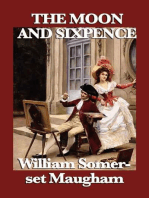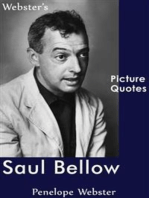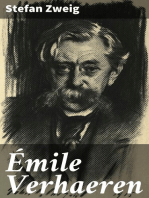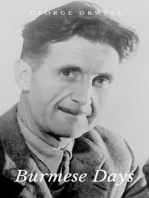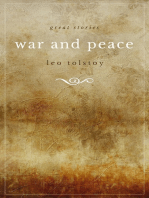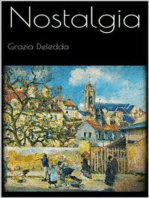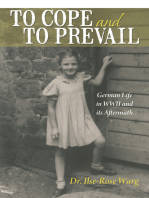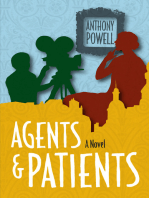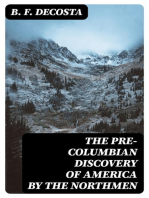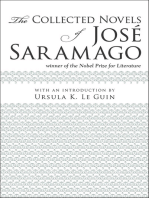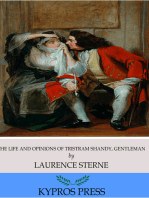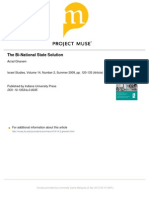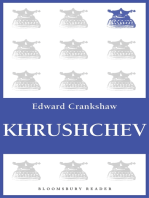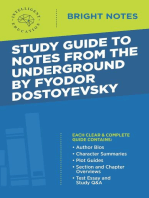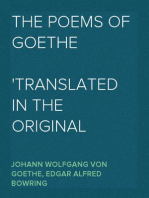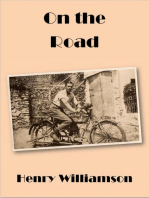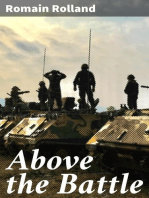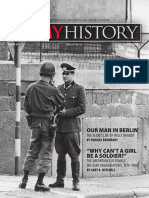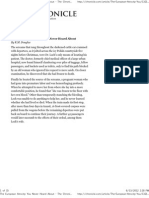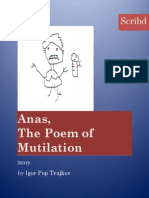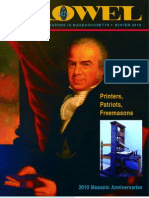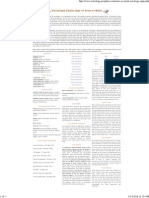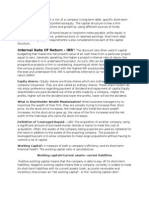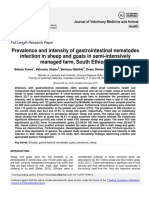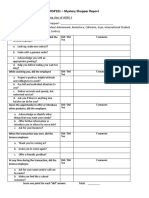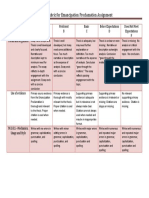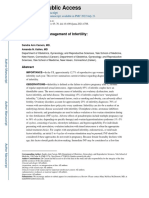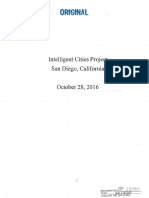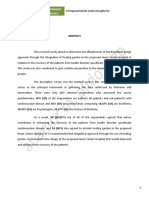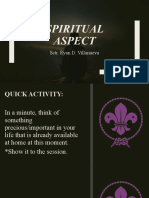Professional Documents
Culture Documents
Alone in Berlin
Alone in Berlin
Uploaded by
Claudia FerentsOriginal Description:
Copyright
Available Formats
Share this document
Did you find this document useful?
Is this content inappropriate?
Report this DocumentCopyright:
Available Formats
Alone in Berlin
Alone in Berlin
Uploaded by
Claudia FerentsCopyright:
Available Formats
Alone in Berlin Hans Fallada
About the Book Alone in Berlin is based on a true story. Otto and Anna Quangels son has died whilst serving with the German Army. In a moment of anger, Anna blames Otto and his Fuhrer. Otto is offended and decides to resist the Nazi regime in his own unique way writing and dropping anti-Nazi postcards. The postcards begin to be turned into the police, and the case is given to Inspector Escherich who plants a flag in a map of Berlin to mark each location where they were found. The Quangels evade capture for a very long time, and along the way we meet a number of different characters who come under suspicion, and have their own guilty secrets. The novel is an interesting look into the fear of ordinary Germans, how many people were made into criminals even though they were living their ordinary lives. The story also follows the Quangels as they go to jail and their subsequent trial. About the Author Hans Fallada became a successful author before the Nazis came to power, and tried to remain non-political when they were in power, and despite their strict control on the writing profession, Fallada did not leave Germany. He suffered from depression and at times abused alcohol and certain drugs, and spent quite a lot of time in asylums. After the war, his poet friend Becher who was working for the Soviets gave him the file on Otto and Elise Hampel, the real life case of the postcard droppers. Fallada wrote the novel in 24 days, but did not live to see its publication in 1947. The book is often bitter and sarcastic about the characters behaviour, which adds to the emotion of the book. Discussion Questions Please note some of these questions may act as spoilers for the book. 1. did you find it disappointing that the postcards didnt have any real impact? 2. how do you feel about Enno Kluge? Do you feel sorry for him? 3. do Kluge and Emil Borkhausen epitomise how people were able to become petty criminals under the Nazi regime if they were willing to denounce their fellow citizens? www.hmd.org.uk
4. what is your reaction to Baldur Persicke? Does his treatment of his father represent how the State has managed to indoctrinate children to denounce a parent? 5. do you like Judge Fromm? Though he is prepared to let Frau Rosenthal live in his spare room, and helps out the Quangels, do you feel he could do more? Is it acceptable that he is protecting himself from the Nazis? 6. discuss why Inspector Escherich kills himself. 7. how do you feel about the final chapter? Do you feel that Fallada makes a case that anyone can chose to be good and not profit from a genocidal regime? Find out more about acts of resistance during the Holocaust http://www.hmd.org.uk/genocides/the-holocaust/liberation-resistance-and-rescuers, how one person can make a difference http://www.hmd.org.uk/resources/theme-papers/2006 and The White Rose, a group of students who stood up to the Nazi regime http://www.hmd.org.uk/resources/education/case-study-the-white-rose.
www.hmd.org.uk
You might also like
- Defying Hitler by Sebastian HaffnerDocument4 pagesDefying Hitler by Sebastian Haffnerfudezeji0% (1)
- Abaqat Al AnwarDocument8 pagesAbaqat Al AnwarAli Nadeem Rezavi0% (1)
- “Dear Fatherland, Rest Quietly”: A Report on the Collapse of Hitler’s “Thousand Years”From Everand“Dear Fatherland, Rest Quietly”: A Report on the Collapse of Hitler’s “Thousand Years”No ratings yet
- A Godforsaken Hole - Evgeny ZamyatinDocument62 pagesA Godforsaken Hole - Evgeny Zamyatin_Weirdo_100% (1)
- Study Guide to Tomorrow and Yesterday and Other Works by Heinrich BöllFrom EverandStudy Guide to Tomorrow and Yesterday and Other Works by Heinrich BöllNo ratings yet
- Thomas Mann's War: Literature, Politics, and the World Republic of LettersFrom EverandThomas Mann's War: Literature, Politics, and the World Republic of LettersRating: 5 out of 5 stars5/5 (2)
- Stalin's Scribe: Literature, Ambition, and Survival: The Life of Mikhail SholokhovFrom EverandStalin's Scribe: Literature, Ambition, and Survival: The Life of Mikhail SholokhovNo ratings yet
- To Cope and To Prevail: German Life in WWII and its AftermathFrom EverandTo Cope and To Prevail: German Life in WWII and its AftermathNo ratings yet
- The Idiot (Translated by Eva M. Martin)From EverandThe Idiot (Translated by Eva M. Martin)Rating: 4 out of 5 stars4/5 (2576)
- The Pre-Columbian Discovery of America by the Northmen: Illustrated by Translations from Icelandic SagasFrom EverandThe Pre-Columbian Discovery of America by the Northmen: Illustrated by Translations from Icelandic SagasNo ratings yet
- Summary of Scattershot By Bernie Taupin: Life, Music, Elton, and MeFrom EverandSummary of Scattershot By Bernie Taupin: Life, Music, Elton, and MeNo ratings yet
- Life and How to Live It: Volume One: Begin the BeginFrom EverandLife and How to Live It: Volume One: Begin the BeginRating: 5 out of 5 stars5/5 (1)
- The Unknown Masterpiece and Other StoriesFrom EverandThe Unknown Masterpiece and Other StoriesRating: 3.5 out of 5 stars3.5/5 (60)
- The Burning Secret: The Burning Secret - Stefan ZweigFrom EverandThe Burning Secret: The Burning Secret - Stefan ZweigRating: 5 out of 5 stars5/5 (1)
- The Bi-National State Solution: As'ad GhanemDocument15 pagesThe Bi-National State Solution: As'ad GhanemlarryfoleNo ratings yet
- NAPOLEON: The Legacy and the Real Extraordinary Man Behind ItFrom EverandNAPOLEON: The Legacy and the Real Extraordinary Man Behind ItNo ratings yet
- The Earth and Sky of Jacques Dorme: A NovelFrom EverandThe Earth and Sky of Jacques Dorme: A NovelRating: 3.5 out of 5 stars3.5/5 (25)
- Study Guide to Notes From the Underground by Fyodor DostoyevskyFrom EverandStudy Guide to Notes From the Underground by Fyodor DostoyevskyNo ratings yet
- On the Road: Contributions to the Weekly Dispatch, 1920-1921: Henry Williamson Collections, #6From EverandOn the Road: Contributions to the Weekly Dispatch, 1920-1921: Henry Williamson Collections, #6No ratings yet
- A Certain Idea of France Ernst Junger's Paris Diaries 1941-44Document21 pagesA Certain Idea of France Ernst Junger's Paris Diaries 1941-44Iurii MelnykNo ratings yet
- Eric Hobsbawm Primitive Rebels PDFDocument1 pageEric Hobsbawm Primitive Rebels PDFMike0% (1)
- History: Our Man in Berlin "Why Can'T A Girl Be A Soldier?"Document52 pagesHistory: Our Man in Berlin "Why Can'T A Girl Be A Soldier?"Mark Marasigan100% (1)
- The European Atrocity You Never Heard About - The Chronicle Review - The Chronicle of Higher EducationDocument15 pagesThe European Atrocity You Never Heard About - The Chronicle Review - The Chronicle of Higher EducationNexist Xenda'thsNo ratings yet
- Anas, The Poem of MutilationDocument28 pagesAnas, The Poem of MutilationIgor Pop TrajkovNo ratings yet
- Anal Sac DiseasesDocument10 pagesAnal Sac DiseasesPratap KafleNo ratings yet
- MainIdea PDFDocument3 pagesMainIdea PDFchentika bungaNo ratings yet
- Showing AdmirationDocument2 pagesShowing AdmirationpoerNo ratings yet
- The TrowelDocument19 pagesThe TrowelSean ChevrierNo ratings yet
- Case Presentation: - Samraj, Catherine - Thakur, Pratibha - Viswanathan, PreethiDocument107 pagesCase Presentation: - Samraj, Catherine - Thakur, Pratibha - Viswanathan, PreethiRahima AliNo ratings yet
- 02 - Sanjaya Kumar Barik-EnglishDocument210 pages02 - Sanjaya Kumar Barik-EnglishSanjaya KumarNo ratings yet
- Aries Horoscope Mesh Rashi - All About AriesDocument1 pageAries Horoscope Mesh Rashi - All About AriesNill SalunkeNo ratings yet
- Finance Management Notes MbaDocument12 pagesFinance Management Notes MbaSandeep Kumar SahaNo ratings yet
- 2000-09-27 - Mathura - Krishna Kills KamsaDocument2 pages2000-09-27 - Mathura - Krishna Kills KamsaDasNo ratings yet
- Prevalence and Intensity of GINDocument5 pagesPrevalence and Intensity of GINMereba DesieNo ratings yet
- Cardinal Vowels and Short Vowels LectureDocument18 pagesCardinal Vowels and Short Vowels LectureDr.Eman LinguisticsNo ratings yet
- Seneca Mystery Shopper ReportDocument2 pagesSeneca Mystery Shopper ReportthedubuloverNo ratings yet
- Astrology Compatibility For Marriage Marriage and AstrologyDocument7 pagesAstrology Compatibility For Marriage Marriage and AstrologyRasel MollikNo ratings yet
- Modern Dance Reporting in PeDocument26 pagesModern Dance Reporting in PeNAME JANE ALEXIS100% (1)
- PerversionDocument28 pagesPerversionAlecTschantz100% (1)
- Grading Rubric For Emancipation Proclamation AssignmentDocument1 pageGrading Rubric For Emancipation Proclamation AssignmentL.A MangaNo ratings yet
- (1234567890) PDFDocument2 pages(1234567890) PDFHamyeu naseerNo ratings yet
- (I) Determine Acts of Bankruptcy That Have Been Committed. Support Your Answer With Relevant Authorities. (20 Marks)Document9 pages(I) Determine Acts of Bankruptcy That Have Been Committed. Support Your Answer With Relevant Authorities. (20 Marks)Aysiah AzhariNo ratings yet
- Nihms 1804691Document25 pagesNihms 1804691Annisa Zaskia AlexandraNo ratings yet
- Adherence and Perceived Barriers To Oral Antiviral Therapy For Chronic Hepatitis BDocument11 pagesAdherence and Perceived Barriers To Oral Antiviral Therapy For Chronic Hepatitis BLuciano DelphinoNo ratings yet
- San Diego Deploys The World's Largest Smart City PlatformDocument60 pagesSan Diego Deploys The World's Largest Smart City PlatformCBNo ratings yet
- SG1731/SG2731/SG3731: Features DescriptionDocument5 pagesSG1731/SG2731/SG3731: Features DescriptionRavindra MaraweeraNo ratings yet
- Direct Observation of Procedural Skills (Surgical DOPS) - Assessment FormDocument2 pagesDirect Observation of Procedural Skills (Surgical DOPS) - Assessment FormDronacharya RouthNo ratings yet
- Clasa A Ix A Judet 2014Document2 pagesClasa A Ix A Judet 2014Georgescu ElenaNo ratings yet
- Biology Investigatory ProjectDocument14 pagesBiology Investigatory Projectzahir khanNo ratings yet
- Thesis Refitiing of Horizontal StructuresDocument36 pagesThesis Refitiing of Horizontal StructuresBen PastorNo ratings yet
- Spiritual Aspect: Sctr. Ryan D. VillanuevaDocument33 pagesSpiritual Aspect: Sctr. Ryan D. VillanuevaMaestro Ryan VillanuevaNo ratings yet
- INWOSOLODocument5 pagesINWOSOLOrollindonutNo ratings yet
- 06 - Chapter-I Introduction PDFDocument7 pages06 - Chapter-I Introduction PDFKs VickyNo ratings yet






